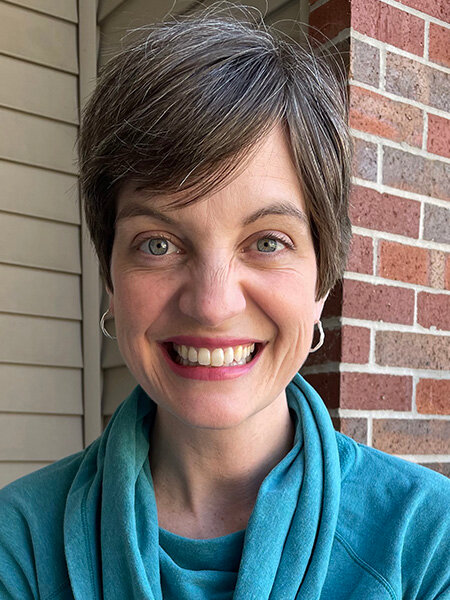Most people who walk into Freedom Church in Neosho, Missouri, start with a worship service. It’s an on-ramp to the church’s discipleship pathway, a natural starting point on the journey from being a first-time visitor to a growing, serving follower of Christ.
For kids and families, said Pastor Jack Lucas, that first worship service is often in the context of Vacation Bible School (VBS). Children attend worship at VBS during the day and bring their parents back to Family Night at the end of the week. The church, located in a rural community in southwestern Missouri, holds its VBS in July, just a few weeks before new small groups start meeting during back-to-school season.
“We want to move them from Bible school to our Wednesday night groups,” said Lucas, who spent 20 years promoting VBS in Illinois before moving to the neighboring state last summer. If worship is the entry point, life groups for kids and adults are the next step in the pipeline, followed by discipleship classes, service teams, and missions involvement.
But it all starts with worship, and for many families, with VBS. Freedom Church intentionally positions Vacation Bible School as an integral part of its discipleship pipeline.
“It’s never a miss when a child hears the gospel,” Lucas said. But a common mistake is making VBS a one-week outreach only. Churches miss an opportunity, the pastor said, when they don’t have a plan to incorporate VBS into their overall discipleship strategy.
Frank Lewis believes there’s nothing quite like VBS. The revitalization pastor at Nashville’s Tusculum Hills Baptist Church said the annual outreach is a user-friendly option for families who are looking for summer opportunities for their children but may not be involved in a local church.
“You’re going to love them and treat them well,” Lewis said of interactions with kids at VBS. Plus, what churches offer that week is hard to find elsewhere: concentrated teaching time for five days, with a thematic approach to God’s Word and practical application.
“In a week’s time, children get the equivalent of about a year’s worth of Sunday School classes,” Lewis said. And that’s especially true for families that don’t attend church every Sunday.
Several years ago, Tusculum Hills discontinued its VBS because they didn’t have the volunteers they needed, Lewis said. But they brought it back last summer with the help of partnering churches in the area and Lifeway’s VBS team. The church has positioned VBS as a launch point for other discipleship-focused ministries.
“I knew if we did a good job with our VBS, we could strike while the iron is hot and encourage people to let us enroll their children straight from VBS into our Sunday School,” Lewis said.
The church’s South Nashville community is home to immigrants and refugees who have resettled in the area. Before last year’s VBS, Tusculum Hills had one Sunday School class for children with around three attendees each week. After VBS, the church started new children’s classes. They’ve grown from one class to four and from three kids to an average attendance of 40—a number they’ve maintained throughout the school year.
At Freedom Church, Jack Lucas has seen VBS as a way for people to engage in the last step of the church’s discipleship pipeline: go. If VBS is a discipleship starting point for kids and families, it’s also a missions opportunity for more seasoned disciples.
“VBS is the one week of the year that has the potential to mobilize your entire church to reach your community with the gospel,” said Vicki Hulsey, childhood specialist for the Tennessee Baptist Mission Board. VBS not only introduces newcomers to a church’s discipleship opportunities, but Hulsey said it also plays an integral role in the growth of Christ-followers who serve during the week—no matter where they serve.
She pointed to a Lifeway statistic that shows for every leader trained for evangelism at VBS, there are 1.1 salvations. “That is such a motivator to me, to be able to see every leader trained so they can confidently go back and share the gospel.”
Leading any part of VBS is a big responsibility, she said. “Our goal should not be to bring in volunteers to do childcare.” Hulsey encourages churches to train volunteers serving in all areas–Bible study, music, crafts, snacks–to share the gospel with children at VBS. “I have seen crafts, snacks, and recreation be places where it comes together for kids. They let down their guard and are willing to talk to someone.”
VBS isn’t only an opportunity to disciple kids and students, Hulsey said. It has an impact on a church’s younger leaders as well. Let them work alongside experienced leaders, she said, so that new leaders who may never have been in a classroom before are being discipled by those more seasoned leaders.
“It’s a natural training ground for being able to raise up and disciple leaders.”
Looking for another way to train and equip VBS leaders? Include them in follow-up with families after VBS, Hulsey advised. She encourages leaders to write a postcard during the week to each child in their class. Put them in the mail on Friday, and let kids get excited when they receive a note from the teacher who invested a week to get to know them and share Jesus with them.
For in-person visits to families who attended VBS, deliver a craft the child made during the week or a photo of the child in a VBS-themed frame. Train leaders in follow-up and include them in the process, Hulsey said.
“When the last decoration comes down, VBS should not be over,” she said. “The most important work of VBS comes afterward with the follow-up.”
___
Meredith Flynn is a freelance writer for Lifeway Christian Resources.






